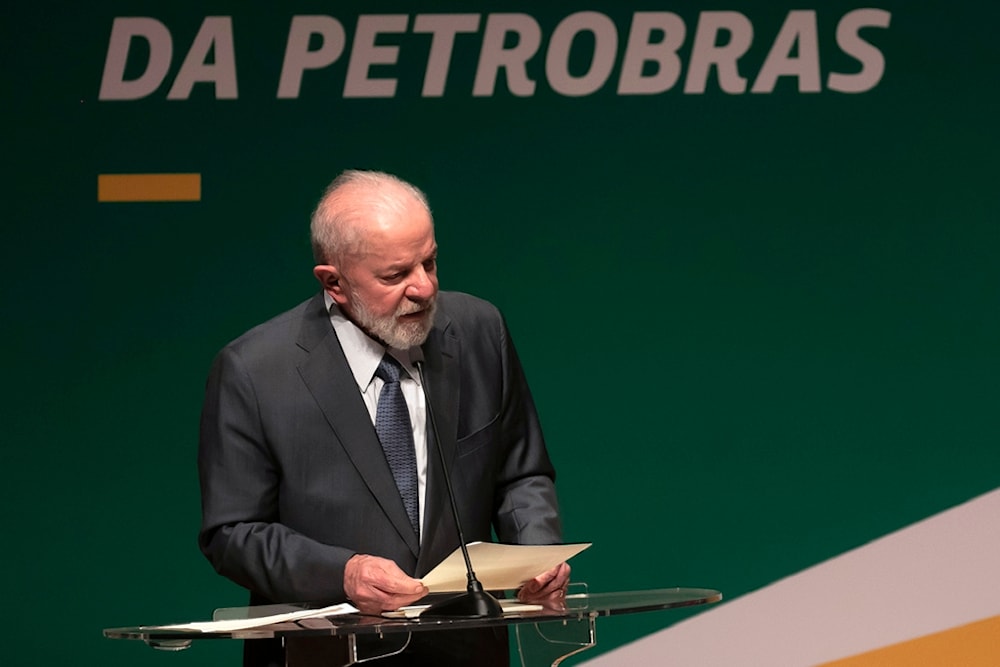Lula promises retaliation against US steel tariffs
Brazilian officials are evaluating trade measures to counter the tariff, with Vice President Geraldo Alckmin advocating for negotiations.
-

Brazil's President Luiz Inacio Lula da Silva speaks during the inauguration ceremony for the new president of the state-run oil company Petrobras, in Rio de Janeiro, Brazil, June 19, 2024 (AP Photo/Bruna Prado, File)
Brazilian President Luiz Inácio Lula da Silva pledged on Friday to match US trade actions with reciprocal measures, following President Donald Trump's decision to impose a 25% tariff on steel imports. Speaking to Radio Clube do Pará, Lula stated, "There is no doubt, there will be reciprocity" in response to the move.
As the second-largest steel supplier to the US after Canada, Brazil exported 4.08 million tonnes of the metal in 2024. While Institutional Relations Minister Alexandre Padilha previously dismissed the idea of a trade war, Lula has maintained that any US tariffs would be met with equivalent action.
Despite his firm stance, Lula stated that he hopes to strengthen economic ties with Washington, given that the US is Brazil's second-largest trading partner after China. However, his government is now considering legal action at the World Trade Organization (WTO) or imposing retaliatory tariffs on US products, as part of its response to Trump's move.
A Shift from Trump's Initial Brazil Strategy?
The tariffs appear to contradict earlier reports that Trump would take a softer approach toward Brazil to counter China's influence in South America. In January, Folha de S.Paulo reported that the Trump administration planned to increase investments and bilateral ties with Brazil rather than impose trade restrictions. This sudden shift in strategy raises questions about whether Washington's trade priorities have changed.
Brazilian officials are evaluating trade measures to counter the tariff, with Vice President Geraldo Alckmin advocating for negotiations, as reported by Reuters. Alckmin suggested that Brazil could explore quotas as an alternative, noting that the US maintains a trade surplus with Brazil and that the South American nation is not the cause of US trade issues.
Meanwhile, Aço Brasil, the Brazilian steel industry association, voiced concern over the tariffs, arguing that they would not benefit either country and urging both governments to seek a diplomatic resolution.
Read more: How the trade war could expand beyond tariffs: WaPo
With US tariffs set to take effect in March, Brazil's government must now decide whether to pursue a WTO complaint, impose retaliatory measures, or negotiate new terms with Washington.
Given China's growing economic ties with Brazil, a failure in US-Brazil negotiations could push Brasília to strengthen its cooperation with Beijing, further shifting Latin America's trade balance away from the United States.

 3 Min Read
3 Min Read









